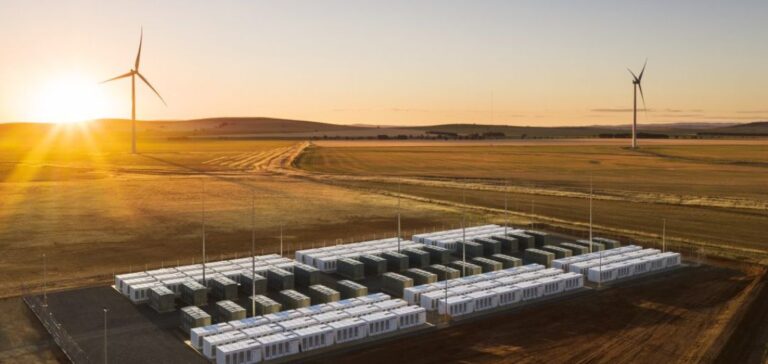Australia is the world market leader in battery energy storage systems (BESS). The total number of pipeline projects announced now exceeds 40 gigawatts (GW), according to the latest analysis by Wood Mackenzie, launched at the Australian Clean Energy Summit in Sydney.
Australia: an attractive market for renewable energy storage
“The recent renewable energy boom and competitive market design have made Australia one of the most attractive markets for grid-scale energy storage worldwide. With competitive wholesale and frequency control markets offering diverse revenue streams for battery storage, and significant funding from the Australian government to provide revenue certainty for storage projects. For this reason, we expect a 28% increase in the country’s battery storage capacity by 2032,” said Kashish Shah, Senior Analyst at Wood Mackenzie.
Lower prices for battery systems and modules expected in Asia-Pacific Two-hour batteries are currently the most widespread technology in Australia, with project owners primarily targeting the frequency control and ancillary services (FCAS) market. Battery module prices are set to fall by over 40% in Australia and South Korea by 2032 for LFP and NMC chemicals.
This will reduce overall system costs by 18% to 21% on a USD per kilowatt-hour (KWh) basis over the next ten years, becoming the main factor in reducing investment costs. The current pricing conditions are attributable to the slowdown in demand growth for electric vehicles and the decline in lithium prices, which have fallen by almost 46% since November 2022. Further systemic price declines due to increased refining and production capacity are expected by 2025.
Battery costs plummet: Australia faces competition from China
Wood Mackenzie expects that falling commodity prices and technological improvements will also reduce the price of battery modules over the next few years. By comparison, battery system costs for grid-scale storage in Australia are 30% to 40% higher than in China. China is the cheapest region, and prices are set to fall by 50% by 2032. Prolific domestic module manufacturing and intense competition between market participants will mean that costs in China will fall faster than anywhere else in the world.
“Chinese system costs benefit from a booming domestic supply chain, while import dependency in Australia and South Korea will continue to be a bottleneck. In addition, high labor wage rates in Australia will lead to PBS cost inflation that will dilute cost reduction gains in modules,” added Shah.
LCOE for autonomous energy storage in Australia At present, the discounted cost of energy (LCOE) for grid-scale autonomous energy storage is still expensive compared to other dispatchable generators, but it will reduce gas consumption.electricity generation in 2032 according to Wood Mackenzie’s findings.
Looking ahead, Wood Mackenzie expects renewables and storage to reduce coal and gas consumption in 2028, when battery storage capacity accelerates in the Australian market.
“However, there are some barriers to Australia’s adoption of energy. Like getting a grid connection on time and to a desired grid point is a big challenge. It can be expensive too. The cost of building a substation is around 12-13% of total capital expenditure. But overall, high battery costs will be a continuing challenge for Australia compared to the rest of the APAC region,” concluded Shah.





















